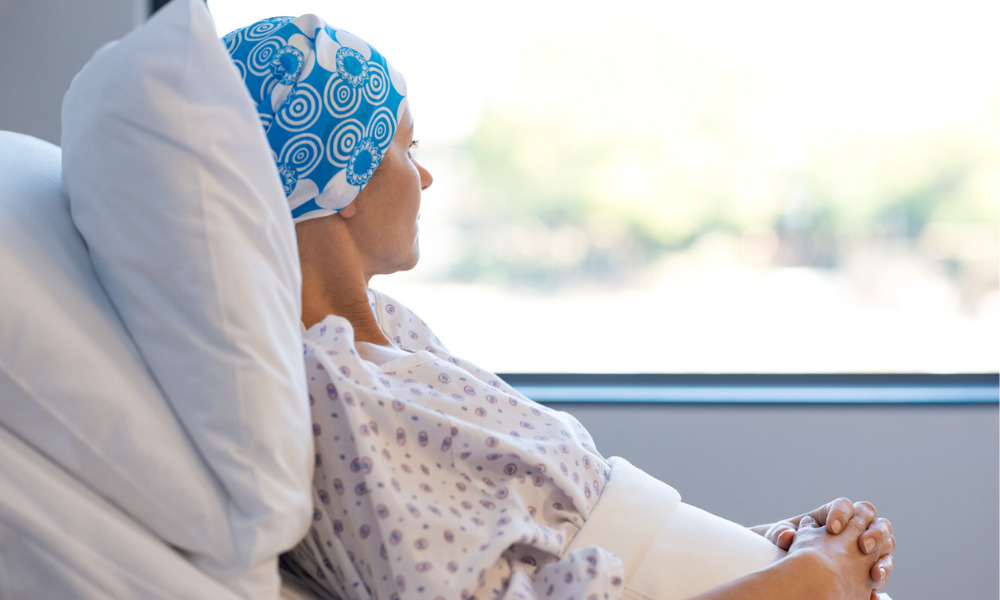
Non-profit aims to provide resources to cancer patients via their employers

For many people undergoing cancer treatment, continuing to work is an important part of maintaining a sense of normality.
In fact, Macmillan Cancer Support UK figures showed that 85% of employed people diagnosed with cancer said that it was important for them to continue working, and 57% said that continuing to work helped them maintain positivity and morale.
According to Ministry of Health figures, around 40% of New Zealanders living with cancer are of working age. For an employer, knowing how to provide the right support goes a long way to improving the wellbeing and quality of life of team members – and a vital part of this is being able to provide external resources.
One key resource for employers is Look Good Feel Better (LGFB) – a New Zealand-based non-profit which is supported by the cosmetics industry, and offers a series of classes focused on taking care of the body while it goes through the difficult process of cancer treatment. According to general manager Clare O’Higgins, the physical signs treatment can impact confidence at work – and so the classes offer the opportunity to pick up new tips and techniques, and to connect with others sharing a similar experience.
“We aim to provide practical, relaxed and engaging sessions where you’re able to just take some time away from treatment, and to engage with others for mutual support,” O’Higgins told HRD.
“People come to us because they want to disguise the visible impact of cancer treatment, and because they want to feel better and gain confidence. The important thing for us is to let organisations and workplaces know that we’re available for any staff member or family member that may be going through a diagnosis.”
“We run programmes for any person with cancer, at any stage of their diagnosis,” she explained.
“We have been offering in-person community classes for the last 30 years, and over the last 18 months we’ve extended our offering to online live programmes, on-demand programmes and podcasts. We’re supported by the cosmetics industry which donates over 37,000 individual items, and every participant receives a free feel-better back of skincare and makeup.”
LGFB’s programmes cover a broad variety of skills including wigs and scarf tying techniques, makeup and skincare, hand and nail care, and hair loss and regrowth.
O’Higgins noted that these sessions are run by trained specialists, and for attendees, being able to engage with professionals is a valuable part of the process.
“We have have a fabulous session run by a hairdresser and wig specialist which talks about managing hair loss and regrowth, for example,” O’Higgins said. “When hair grows back, it often grows back completely differently to how it did before, and to actually know how to deal with that as it grows and to speak to a professional is really important.”
“Brows frame your face, and one thing I’ve always seen is how a person can really recognise themselves once they’ve learned how to re-draw their eyebrows,” she added.
“We have a special brow focus session where a trained facilitators shows you how to re-draw your eyebrows.
“We also have a men’s speaker series every month, and they talk about male skincare and body care. That’s an opportunity for men to connect with other men in a safe space, and we’ve had all kinds of speakers – including The Mad Butcher, and an All Black.”
LGFB provides free services to any patient diagnosed with cancer, and O’Higgins notes that when a diagnosis is received, employers and HR professionals are often among the first to find out. This puts them in a powerful role when it comes to providing help and resources, and offering these tools can become another way to take care of employee health and wellbeing.
“One thing we recognise is that employers have had a lot to navigate over the last couple of years, particularly when it comes to the wellbeing of their employees,” O’Higgins said.
“What we’re trying to do is to give employers another tool in their toolkit, so that if they come to know someone who is going through treatment, they know that this is something they can offer, and it is a free service for them.”
“It’s also a way for employers to think about the emotional wellbeing of their staff, and it allows them to offer something tangible and practical within New Zealand,” she concludes.
“We want to reach every New Zealander who may be diagnosed with cancer, and one of the main ways that people can find out is through their workplace. Putting our link on their intranet, and having our materials on offer has the potential to be a really supportive tool.”
To find out more about LGFB’s programmes and class schedule, click here.